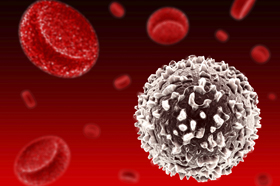Blue Earth Therapeutics Gets FDA OK for Clinical Study of 177Lu-rhPSMA-10 to Treat mCRPC
 The US FDA has cleared Blue Earth Therapeutics’ Investigational New Drug Application (IND) application for177Lu-rhPSMA-10.1, enabling the company to initiate a Phase 1/2 clinical study to evaluate the safety, tolerability, dosimetry and anti-tumor activity of177Lu-rhPSMA-10.1 in men with metastatic castrate-resistant prostate cancer (mCRPC).
The US FDA has cleared Blue Earth Therapeutics’ Investigational New Drug Application (IND) application for177Lu-rhPSMA-10.1, enabling the company to initiate a Phase 1/2 clinical study to evaluate the safety, tolerability, dosimetry and anti-tumor activity of177Lu-rhPSMA-10.1 in men with metastatic castrate-resistant prostate cancer (mCRPC).
177Lu-rhPSMA-10.1 is the first clinical candidate in Blue Earth Therapeutics’ oncology development program of next generation therapeutic radiopharmaceuticals. The company holds exclusive worldwide rights to therapeutic applications of radiohybrid Prostate-Specific Membrane Antigen (rhPSMA) radiopharmaceutical technology to help advance the treatment of patients with prostate cancer.
“Clearance to proceed with this first clinical study for177Lu-rhPSMA-10.1 marks an exciting milestone for our new company, Blue Earth Therapeutics, and the patients with cancer that we hope to serve,” said David E. Gauden, D.Phil., Chief Executive Officer of the Company. “We consider177Lu-rhPSMA-10.1 to be a next generation PSMA therapy with the potential to be best-in-class.177Lu-rhPSMA-10.1 is the result of a careful optimization process which aimed to maximize therapeutic index by delivering high radiation doses to prostate cancer lesions while sparing normal tissues wherever possible. Excitingly, this optimized technology can be developed with both beta- and alpha-emitting therapeutic radioisotopes. We look forward initially to applying our proven radiopharmaceutical development expertise in advancing177Lu-rhPSMA-10.1, and, over time, developing a pipeline of additional oncology therapeutics to help address significant unmet patient needs.”
The trial is an open-label, multi-center, integrated Phase 1 and 2 study to evaluate the safety, tolerability, radiation dosimetry and anti-tumor activity of177Lu-rhPSMA-10.1 in men with metastatic castrate-resistant prostate cancer. Phase 1 will investigate the safety, tolerability and dosimetry of multiple cycles of177Lu-rhPSMA-10.1 in subjects with PSMA-positive mCRPC which has progressed following prior therapy. Results from Phase 1 will be used to determine the recommended treatment regimen to be tested in Phase 2. The Phase 1 study will be conducted at clinical sites in the United States, with further sites added for the Phase 2 component of the trial, in both the United States and Europe.
Citation
Blue Earth Therapeutics Gets FDA OK for Clinical Study of 177Lu-rhPSMA-10 to Treat mCRPC. Appl Radiol.
April 13, 2022